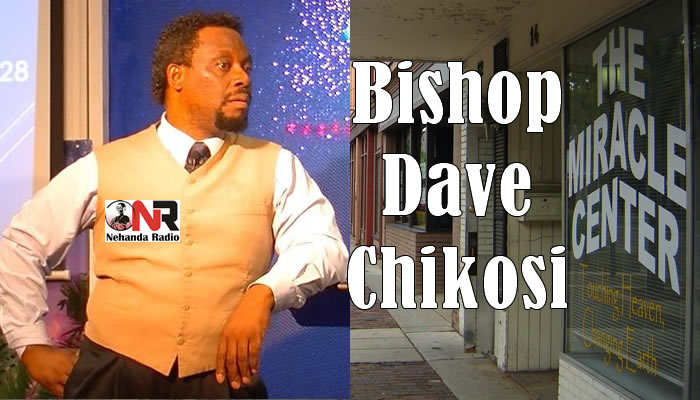By Bishop Dave Chikosi
Pentecostals jokingly say that seminary is best pronounced cemetery. They say if you ever choose to go in you may never come out alive.

Seminary is the graveyard of preachers. There your faith gets deconstructed, your fire for souls gets extinguished and your heart for God stops beating.
While the above may be overstating the case against theological education, what I can say with certainty and from personal experience is that formal theological training is not for everybody. We know some who have come out with their spirit sterilized, and when they took to the pulpit they looked and sounded like they were on tranquilizers.
To suggest that every Christian minister needs to go through formal theological training is unwise. It is to implicitly suggest that there are no other ways to gain ministry competency than to sit for three or more years under the tutelage of, more often than not, liberal professors with impeccable PhD’s but (sometimes) questionable salvation experience.
That’s simply not true. That suggestion ignores how God has historically called and used simple, uneducated but anointed men to turn the world right side up.
How Jesus trained men for ministry
Take as an example the disciples of Jesus. What kind of training and preparation did they receive at the hands of the Master? It certainly was with a formal college or seminary style of education.
The disciples underwent what can best be described as an apprenticeship. But apparently that wasn’t good enough for those in the academy, because at the end of their three and half years of training, the intellectuals still “perceived that they were unlearned and ignorant men” (Acts 4:13).
Not much has changed since.
But the proof of the pudding is in the eating. Watch and listen to an unlearned and ignorant disciple called Simon Peter as he preaches his first sermon ever. The presentation probably violated every homiletical and hermeneutical rule in the book: we know it was exegetically questionable for sure.
But look at the results. Peter make an appeal and 3000 souls run to the altar. Not bad for this un-degreed rookie preacher.
If Peter belonged to one of our modern churches, the Pulpit Committee would never have selected him to preach on that milestone occasion. That’s because most Pulpit Committees (are these Committees even Biblical?) require a minimum of a college degree before they hire you as pastor.
Academic elitism
Many churches have bought into the lie that one cannot truly fathom the deeper things of God unless one has a college degree. Only educated clergy can have a grasp of the mysteries of the faith, and to these elites the laity must look up for revelation and spiritual understanding.
But that’s just a bunch of hooey. Not only does it smack of elitism, but it is heretical insofar as it negates the historical truth that it is God, by His Spirit, and His Spirit alone, who calls, raises, anoints, equips and sends men into the field to serve Him and the world for whom His Son died.
Have we never heard that it’s “Not by might, nor by power, but by my spirit, said the LORD of hosts” (Zechariah 4:6).
To be fair, special religious education is of some value. Theological training gives one skills for research, ability to organize data, proper speaking skills etc. It provides ministerial polish but polish is not the same thing as anointing.
Theology is good, but kneeology is better.
The closest example we have of anyone theological trained in the Bible is the Pharisees. They were a very highly educated bunch. But not only did their education make them arrogant and elitist, it blinded them to the truth of the deity of Jesus.
They refused to accept that He was God in the flesh – something that demons and evil spirits were very quick to recognize! In the end the Pharisee’s education became a stumbling block and secured their status as candidates of hell.
The Cinderella of theological schools
The absence of a robust Pneumatology in most seminary curriculums is perhaps the biggest reason why Pentecostals think theological training is for the birds. Pneumatology is the study of the Holy Spirit (pneuma is the Greek word for spirit).
The Holy Spirit is seen by Pentecostals as the Cinderella of most seminaries. No-one seems to have a problem inviting the Father and the Son to the theological ball. But Pentecostals want to know why Cinderella gets left behind every time. Is someone afraid of the Holy Ghost?
Most Pentecostals will agree that Christology (doctrine of Christ) is fundamental to Christianity. But why major on Christology and Paterology (doctrine of the Father) while relegating Pneumatology to the backburner?
Why subordinate the doctrine of the Holy Spirit to that of the Father and the Son? Are not the Three co-equal, co-existent and co-eternal? What’s up with this binitarianism?
I think that the day theological schools brings Cinderella out of the backroom of Christian thought is the day that more Pentecostal ministers will consider formal theological training.
(Bishop Dave Chikosi can be reached by email at [email protected]. You can watch his YouTube videos at https://www.youtube.com/user/faithcoach4u. He also blogs at http://davechikosi.blogspot.com)






